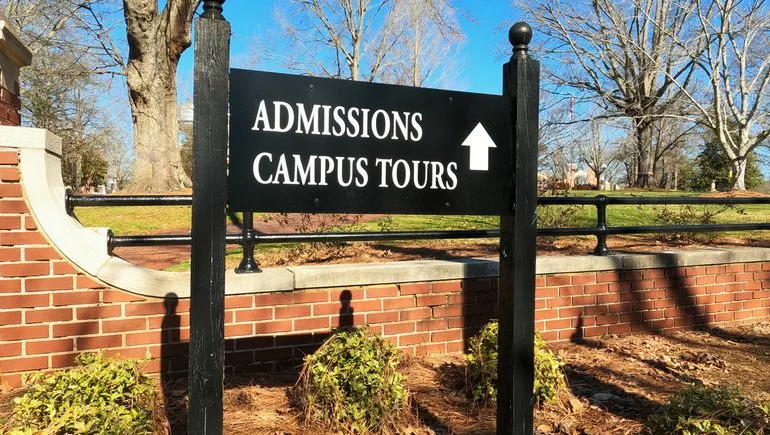[ad_1]
Dive Brief:
- A lot more than 30 instruction and university obtain groups, lawmakers, and teachers are asking the U.S. Office of Instruction to broaden the admissions knowledge it collects from institutions per year to involve new facts, like racial breakdowns of applicants and admitted pupils.
- In a letter Wednesday to James Kvaal, the department’s leading larger schooling official, the coalition requested the office start necessitating schools to send out data on how numerous candidates and learners they acknowledge by legacy insurance policies, which give admissions choice to loved ones customers of alumni. Advocates also want schools to report how lots of early choice and early action applicants, admits and enrolled college students they have. Making use of early conclusion or early motion let prospective pupils to acquire an admission decision quicker, nevertheless early selection binds them to go to a individual establishment in advance of they can weigh competing delivers.
- Schools need to disaggregate their legacy, early decision and early action applicant knowledge by race and ethnicity, the coalition argues. Critics say these tactics skew admissions in favor of rich and White candidates.
Dive Perception:
In gentle of the envisioned U.S. Supreme Court docket choice this year that would strike down or narrow the use of race-acutely aware admissions, advocates wrote that the Schooling Department should really mandate new transparency.
Study has proven that after states like California banned race-mindful admissions, the share of Black, Hispanic and Native American students declined in general public establishments.
Faculties, policymakers and the general public will have to have a further degree of admissions info to understand how the Supreme Court’s feeling will have an affect on the greater ed landscape, they wrote.
Just about every 12 months, federally funded faculties deliver the Education and learning Division substantial details on this sort of metrics as enrollment, finances and staff members, for the Integrated Postsecondary Education and learning Information Procedure, recognised typically as IPEDS.
This information collecting assists the Education Office maintain schools accountable and has around time become far more equity-minded.
Under the Obama administration, the department commenced asking about graduation premiums of students who acquired federal Pell Grants, a key variety of economic help for very low- and reasonable-earnings pupils and families. And in drop 2022, IPEDS started to inquire about no matter whether schools look at legacy preferences.
Much more granular facts is needed, the collection of advocacy teams, policymakers and school college argue. Notable signers on Wednesday’s letter incorporate believe tank New The united states, faculty entry organization The Institute for Faculty Obtain & Results, Bob Shireman, increased ed plan guru and senior fellow at The Century Foundation, and the Institute for Increased Education and learning Policy.
The advocates want the Education and learning Office to improve IPEDS by future slide, following the Supreme Court docket very likely rules, claimed James Murphy, deputy director of bigger instruction coverage at believe tank Education Reform Now, which organized the letter.
Murphy claimed in a telephone interview Tuesday that schools really should report knowledge for the duration of all phases of admissions — how quite a few pupils apply, are admitted and commit — simply because institutions have to have to know if and when throughout the system they are failing to appeal to and enroll a assorted class.
The fault may possibly not lie solely with schools, Murphy said.
“This is not just all college or university recruitment, it is also about preparing — who is telling their students to apply in which,” he stated.
He mentioned new reporting measures wouldn’t be a great deal of a carry for faculties, many of which previously keep track of this knowledge for inside applications. The letter states most schools would be exempt from the prerequisite as they settle for all learners.
“Increasing transparency is a lot more than just a route towards greater accountability for institutions of better training it is a highly effective signal the Biden administration can send to reveal its dedication to variety and accessibility in postsecondary schooling,” the coalition wrote.
[ad_2]
Source link
Meet Our Successful Graduates: Learn how our courses have propelled graduates into rewarding
careers. Explore their success stories here!
Discover More About Your Future: Interested in advancing your teaching career? Explore our
IPGCE, MA, and QTS courses today!

Explore Our Courses: Ready to take the next
step in your education journey? View our
comprehensive course offerings now!

